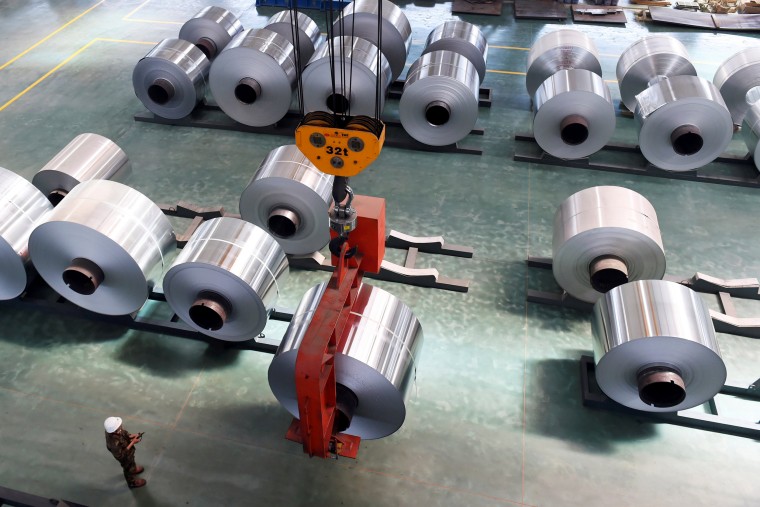As the U.S. and China go toe-to-toe in a trade spat, the fight has found its way into American kitchens and impacts a common household item: aluminum foil.
The Department of Commerce recently leveled heavy duties on Chinese aluminum foil imports — a move political experts say could play well with President Trump’s base of working class voters.
"Trump’s blue-collar base loves it when he talks tough, whether it’s trade or North Korea," said Larry Sabato, director of the Center for Politics at the University of Virginia. "Even if he doesn’t achieve any real improvement in living conditions for the middle class, some of his backers will still give him credit for trying. That might wear thin over four years, though."

In 2016, Chinese aluminum foil imports were valued at around $389 million. American companies in the industry have argued that heavy subsidization by the Chinese has hurt their ability to remain competitive. The preliminary duties on the Chinese companies range from 16.56 percent to 80.97 percent.
The foil industry lauded the Commerce Department's actions.
"The association and its foil-producing members are very pleased with the Commerce Department’s finding and we greatly appreciate Secretary Ross’ leadership in enforcing U.S. trade laws to combat unfair practices," Heidi Brock, president and CEO of the Aluminum Association said in a statement.
The American foil industry supports around 20,000 jobs both directly and indirectly, Brock said.
Many of these jobs are in states where Trump won in November, such as North Carolina, Pennsylvania, and West Virginia.
Related: Trump Talks Trade, Vows to Keep ‘America First’ Ahead of Visit with Chinese President
The timing is coincidental as the U.S. relationship with China has been tested by the rising tension with North Korea. The President’s public statements and tweets have suggested he will place economic pressure on the Chinese in an effort to get them to do more to help counter Pyongyang’s nuclear provocations.
The Commerce Department has denied that this recent decision is related to the president’s Tweets.
Trade experts have also said the recent decision likely has no political motivation.
The preliminary decision came as a result of a petition filed by the Aluminum Association in March, long in advanced of the President’s statements, and has followed regular procedure.
The Chinese government has expressed concern over the decision. The Ministry of Commerce posted a statement on their website saying, “China urges the U.S. to act cautiously and make a fair decision to avoid any negative impact on the normal economic and trade exchanges between China and the U.S.”
Twelve major Chinese aluminum exporters and the China Nonferrous Metals Industry Association plan on filing a complaint with the U.S. International Trade Commission.